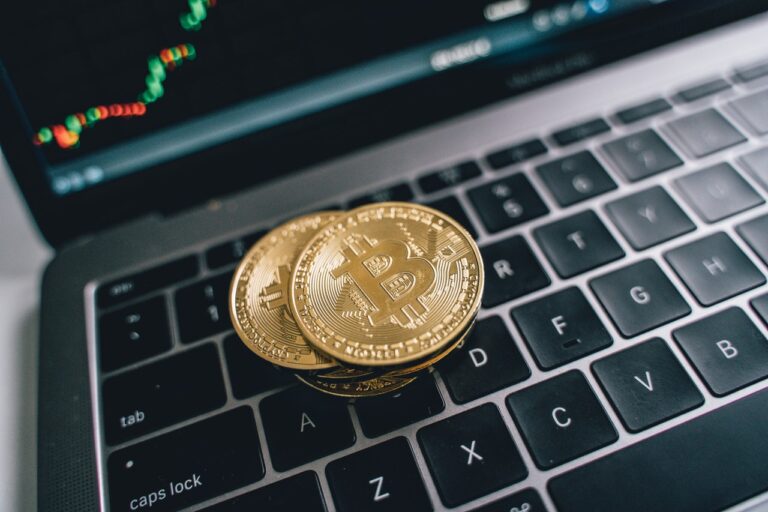How to Buy Bitcoin: 5 Things to Know

In just over a dozen years, bitcoin (BTC) has gone from being a digital currency pioneer to being the granddaddy of all cryptocurrencies, with the longest track record and the highest valuation. The result: Investing in bitcoin has never been easier.
Investors today can buy and sell bitcoin, trading at about $57,600 per coin, as of Nov. 23, 2021, on numerous crypto exchanges, thousands of crypto ATMs, and even in the form of some new ETFs.
But if bitcoin is the oldest and largest crypto, with a total market capitalization of nearly $1.1 trillion, that doesn’t mean investing in bitcoin, or any crypto, is risk free.
Bitcoin is volatile and largely unregulated — as are many of the bitcoin-related products and services (like crypto exchanges) investors must use to trade bitcoin. If you’re interested in trading bitcoin, or buying and holding it as a long-term investment, here’s what you need to know.
Quick Recap Before You Buy Bitcoin
Bitcoin, which turns 13 in January 2022, is truly the OG crypto. It was the first cryptocurrency to be created in 2009, and it remains the most popular and widely traded crypto by far. There are more than 18.86 million bitcoin tokens in circulation as of November 2021, against a capped limit of 21 million.
Also important for new bitcoin investors to know: Many of the features that established bitcoin as a pioneering form of crypto became the foundation for the thousands of different cryptocurrencies that have launched since then.
It’s Decentralized
Unlike fiat currencies like the dollar, bitcoin is not issued or monitored by a central authority like a government or central bank. Instead, it relies on a distributed network of nodes, or computers, that validate transactions using a type of peer-to-peer review or consensus.
This process of network-based checks and balances, so to say, helps to maintain bitcoin’s basic protocol (i.e. the rules that govern the bitcoin platform) and keep it secure.
It’s Digital
Like most forms of crypto, bitcoin is a digital-only currency. It’s traded on digital exchanges and stored in digital wallets (more on those below.)
That said, there are some physical bitcoins that have been produced — although whether these are legal forms of tender or just a type of collectible remains an open question (and a reflection of evolving crypto rules and regulations).
It’s Based on Blockchain Technology
Blockchain technology is central to the functioning of bitcoin and most cryptocurrencies, and you can’t invest in bitcoin without understanding how the two work together. Blockchain is a transparent ledger that enables blocks of transactions to be confirmed through a system of cryptography and peer-to-peer verification.
All transactions, including investment trades, are logged permanently on the blockchain. Miners who verify the transactions are rewarded with more bitcoin. In the case of other types of crypto, blockchain technology may also support other innovations, like smart contracts, dApps, and more.
What Kind of Investment Is Bitcoin?
Is bitcoin a currency, a security, a commodity? These are good questions for would-be investors to ask. While many people consider bitcoin an investment, generally speaking, the Securities and Exchange Commission (SEC), which regulates the financial markets, ruled in 2019 that bitcoin does not meet the criteria for a security.
Although most people consider bitcoin a form of cryptocurrency, there is still a debate about whether bitcoin is truly a form of money that can be exchanged for goods and services. While the commercial use of bitcoin has been growing — and in June 2021, El Salvador became the first country to officially accept bitcoin as legal tender — for the most part bitcoin still isn’t widely used as a form of payment.
So, for the moment, bitcoin is considered a commodity, under the Commodity Exchange Act, because it acts as a store of value — similar to gold.
Other forms of crypto, particularly tokens that may generate returns for investors, may be labeled securities by SEC Chair Gary Gensler. This could have serious implications for how different types of crypto assets are traded, because they would be closely regulated by the SEC.
How to Buy Bitcoin: 5 Things to Know
While you may feel comfortable investing in stocks or ETFs, buying and selling a cryptocurrency like bitcoin requires a different process. Before you begin trading bitcoin, here are five key things to know.
1. You Need a Crypto Wallet
You can put dollars-and-cents money in a physical wallet. But bitcoin is digital and only lives on the blockchain and requires a crypto wallet if you want to buy and sell it. A crypto wallet isn’t a place to store your crypto, per se, but a type of software or hardware that protects the public and private keys that enable you to trade your bitcoin.
• Software wallets. You can choose a mobile wallet or app, or a desktop wallet. These types of wallets, sometimes called hot wallets, are software based and you need a secure internet connection to access them. They’re convenient, and can make trading on exchanges simpler, but any kind of third-party software might be vulnerable to cyber attacks.
Some crypto exchanges (see below) typically provide a hot wallet as part of your account. For security reasons, you may want to keep a separate wallet.
• Hardware wallets. A cold wallet uses hardware, like a thumb drive, to download and secure the keys to your crypto. This type of wallet can be more complicated to use; you have to plug it into a device in order to make a transaction. But it can be more secure, and less vulnerable to hackers.
The biggest drawback is that you could lose a cold wallet, and with it the keys that give you access to your crypto.
2. Understand Public and Private Keys
Like most forms of crypto, bitcoin lives on the blockchain, the permanent digital ledger that records all bitcoin transactions. Bitcoin transactions are validated and added to the blockchain through a complex cryptographic process known as Proof of Work or PoW.
So when you buy, sell, send, or receive bitcoin, you need a public key (basically the digital address of your wallet). But you also need a private key, which gives you access to the bitcoin you own. If you lose, misplace, or forget that private key, you cannot access your bitcoin. And if the private key falls into the wrong hands, your bitcoin can be stolen.
3. Decide Where to Trade
With the exception of some new bitcoin-based investments, you generally can’t trade crypto on a traditional exchange like the NYSE. You need to buy and sell bitcoin on a crypto-based trading platform like an online exchange or app, or by using a traditional brokerage that offers crypto trading.
There are three main types of crypto exchanges: centralized, decentralized, and hybrid. Most crypto exchanges enable crypto-to-crypto trades, or fiat-to-crypto (meaning, you can use a traditional currency like dollars to buy and sell bitcoin and other cryptocurrencies).
• A centralized cryptocurrency exchange is a platform where cryptos are bought and sold, with the help of a third party to conduct these transactions.
• Decentralized exchanges (DEX) allow crypto investors to trade directly with each other, without the need for a middleman.
• Hybrid exchanges aim to combine features of both: e.g., the liquidity of a centralized exchange and the security and anonymity of a DEX.
You can also use P2P, or peer-to-peer, exchanges, which are more like open markets that allow people to trade crypto directly with each other. When choosing a P2P exchange, consider ease of use, whether your funds might be insured, and the types of crypto offered.
4. Personal Identification
To establish an account with an exchange or brokerage, you’ll have to provide your social security number and bank information to fund the account. If the platform adheres to standard KYC (Know Your Customer) rules, you’ll have to provide a government-issued picture ID.
If maintaining some degree of privacy is important to you when trading bitcoin, you may want to consider whether you use a brokerage, crypto exchange, P2P exchange or other method.
5. Fund Your Account
You can fund your trading account using a bank account, debit card, credit card, wire transfer or by using other forms of crypto. It depends where you plan to trade, and what types of currency the platform accepts for trading.
Although trading bitcoin in the U.S. is legal, some banks may flag or even bar deposits to crypto-related sites or exchanges, so be sure to check with your bank in advance.
Also be sure to research any fees associated with different payment options and on different exchanges. Credit cards, for example, charge a processing fee in addition to transaction costs, and may treat bitcoin purchases as cash advances. Crypto exchanges typically charge transaction fees as well, which might come in the form of a flat fee or a percentage of the trade.
Alternate Ways to Invest in Bitcoin
Those are some of the standard ways to buy bitcoin, but nothing stands still in the cryptoverse, and every day it seems there are new options for investors to consider.
• Crypto ATMs. There are now thousands of physical ATMs where you can purchase bitcoin around the country. Unlike a traditional ATM, though, you can’t withdraw cash from these machines; they make digital-only transactions via the blockchain.
• Payment processors. Depending on your state, you may be able to buy bitcoin directly from your PayPal or Venmo account. One drawback is that the crypto you buy on these platforms can’t be moved to your personal wallet or to another exchange.
• P2P exchanges. Unlike decentralized exchanges, which match buyers and sellers anonymously, peer-to-peer (P2P) services may provide a more direct connection between users, allowing users to post requests and shop around for the best trading terms.
• Bitcoin rewards cards. A relatively new option, the bitcoin rewards card operates similar to a credit card that allows you to build up points based on purchases, or get cash back. Here, though, you earn fractions of bitcoin.
Start Trading Bitcoin
Once you have your funding source connected to the platform where you plan to trade bitcoin, and you understand the transaction fees involved, you can place an order.
This part may feel similar to the trading options you might see on a traditional exchange, or when making stock trades. Now most crypto exchanges give investors the option to place market orders, limit orders, stop-loss orders, and more.
In addition, you can buy bitcoin in fractional amounts by dollar-cost-averaging, i.e., investing small amounts on a recurring schedule over time.
The Takeaway
While bitcoin remains a highly volatile cryptocurrency, and investing in bitcoin comes with certain risks, it’s also the oldest and most well-established crypto on the market — as such, buying bitcoin is simpler now than it’s ever been. In just a few steps, you can obtain a crypto wallet, open an account on a crypto exchange (or an online app like SoFi Invest®), and begin trading.
Of course, all the standard rules of caution apply — especially when trading crypto: Be sure to understand the terms and costs and any hidden fees associated with the platforms you choose to trade with. And with bitcoin, as with all cryptocurrencies, there’s the additional caveat to keep your crypto secure.
Disclosures:
SoFi Invest®
The information provided is not meant to provide investment or financial advice. Investment decisions should be based on an individual’s specific financial needs, goals and risk profile. SoFi can’t guarantee future financial performance. Advisory services offered through SoFi Wealth, LLC. SoFi Securities, LLC, member FINRA / SIPC . SoFi Invest refers to the three investment and trading platforms operated by Social Finance, Inc. and its affiliates (described below). Individual customer accounts may be subject to the terms applicable to one or more of the platforms below.
1) Automated Investing—The Automated Investing platform is owned by SoFi Wealth LLC, an SEC Registered Investment Advisor (“Sofi Wealth“). Brokerage services are provided to SoFi Wealth LLC by SoFi Securities LLC, an affiliated SEC registered broker dealer and member FINRA/SIPC, (“Sofi Securities).
2) Active Investing—The Active Investing platform is owned by SoFi Securities LLC. Clearing and custody of all securities are provided by APEX Clearing Corporation.
3) Cryptocurrency is offered by SoFi Digital Assets, LLC, a FinCEN registered Money Service Business.
For additional disclosures related to the SoFi Invest platforms described above, including state licensure of Sofi Digital Assets, LLC, please visit www.sofi.com/legal. Neither the Investment Advisor Representatives of SoFi Wealth, nor the Registered Representatives of SoFi Securities are compensated for the sale of any product or service sold through any SoFi Invest platform. Information related to lending products contained herein should not be construed as an offer or pre-qualification for any loan product offered by SoFi Lending Corp and/or its affiliates.
Crypto: Bitcoin and other cryptocurrencies aren’t endorsed or guaranteed by any government, are volatile, and involve a high degree of risk. Consumer protection and securities laws don’t regulate cryptocurrencies to the same degree as traditional brokerage and investment products. Research and knowledge are essential prerequisites before engaging with any cryptocurrency. US regulators, including FINRA , the SEC , and the CFPB
, have issued public advisories concerning digital asset risk. Cryptocurrency purchases should not be made with funds drawn from financial products including student loans, personal loans, mortgage refinancing, savings, retirement funds or traditional investments. Limitations apply to trading certain crypto assets and may not be available to residents of all states.
Exchange Traded Funds (ETFs): Investors should carefully consider the information contained in the prospectus, which contains the Fund’s investment objectives, risks, charges, expenses, and other relevant information. You may obtain a prospectus from the Fund company’s website or by email customer service at investsupport@sofi.com. Please read the prospectus carefully prior to investing. Shares of ETFs must be bought and sold at market price, which can vary significantly from the Fund’s net asset value (NAV). Investment returns are subject to market volatility and shares may be worth more or less their original value when redeemed. The diversification of an ETF will not protect against loss. An ETF may not achieve its stated investment objective. Rebalancing and other activities within the fund may be subject to tax consequences.
SOIN19179
This article is originally on SoFi.






